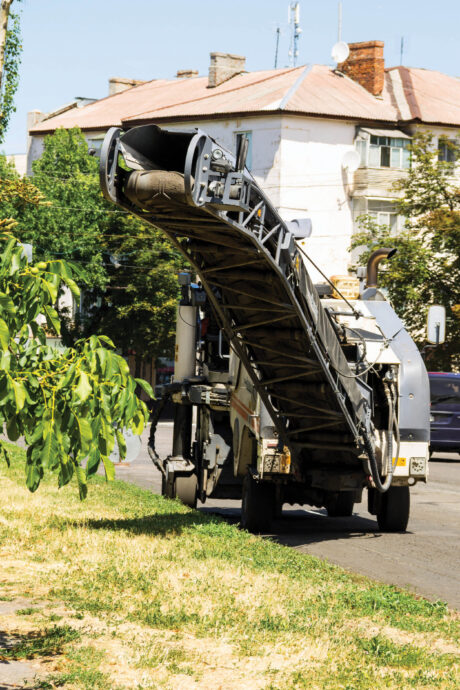Helical spring couplings by Torsion Control Products prolong service life for planers
Thanks to their special torsional elasticity, spring couplings designed by Torsion Control Products (TCP) are ideal for use in mobile road building machines powered by modern diesel engines. For one manufacturer of planers, TCP developed a solution with a helical spring coupling which significantly prolonged the service life of the entire machine.
Road surface removal
In road building technology, road surfaces made of asphalt are removed with planers. The asphalt is removed with the aid of a rotating milling drum fitted with picks. The advantage of milling is that it removes layers of the pavement selectively and precisely in one fast pass. The range of applications for which planers are deployed extends from complete rehabilitation through stripping of individual layers to levelling asphalt and concrete surfaces. Nowadays, these tasks are accomplished mainly with cold milling equipment, in which the milling tools are very hard and the road surface does not have to be heated up. Modern cold milling machines can load a 30-ton truck with asphalt granulate within a few minutes.

Challenging application
Failed couplings, unexpected shutdowns, long traffic delays: those are some of the issues a leader in road building and asphalt equipment manufacturing faced on two of its planers. The configuration of the planer included a diesel engine with flange-mounted, torsionally elastic elastomeric coupling supplied by another coupling manufacturer, a clutch, a gearbox and the milling drum. The torsionally elastic coupling was intended to attenuate torsional vibration so as to protect the other elements of the drive train from damaging resonance vibration. This coupling in a planer must also be able to absorb high impact torques which can occur from the driven side during normal operating conditions. However, the elastomeric coupling they were using was unable to meet these requirements. The customer needed a minimum of 3,000 hours of uptime between overhauls, but the elastomeric coupling failed after just 200 to 1000 hours of uptime. The premature and unanticipated failure of the coupling caused significant extra costs due to downtime. Additional equipment had to be rented to complete the job and the machine had to be removed so the coupling could be replaced. These failures also resulted in disruptive traffic jams and field issues.
Longer service life, lower costs
TCP engineers completed a torsional vibration analysis of the application to determine the correct performance for the coupling. Within six weeks, TCP provided a new helical spring coupling designed specifically for this application. In addition, TCP provided on-site field testing to determine if the coupling met the expectations arising from the analysis. The analysis looked at the gearbox, coupling and hydraulic clutch. Ultimately, the helical spring coupling increased the service life of the entire machine. Uptime tripled to more than 3,000 hours with no failures. The equipment change has enabled the planer manufacturer to make substantial cost savings.
Torsionally elastic spring couplings
With their unique torsional characteristics, TCP spring couplings are especially suited to modern diesel engines that produce lower emissions and more power in smaller packages at lower operating speeds. They run reliably and attenuate drivetrain vibration even in the roughest of applications. With their Smart Damping system, the spring couplings can be tuned to supply damping only when needed and to isolate resonance when damping is detrimental. This reduces torsional spikes at startup, shutdown and transient events, which increases the coupling’s lifespan.



